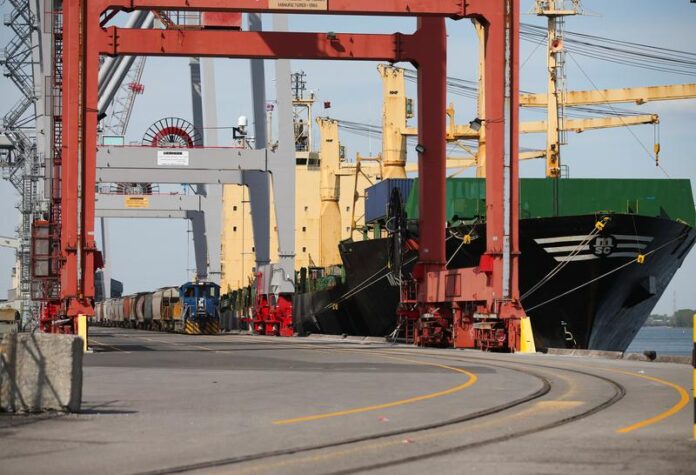LONDON: Trade ministers from the Group of Seven (G7) wealthy nations criticised countries who undermine the global trading system and called for democratic states to rally behind reforms of the international trade rulebook.
Following a virtual meeting, the G7 members said they were concerned about “increased use of non-market policies and practices” and took aim at those who use heavy subsidies, mask the state’s involvement in the economy, and steal technology.
“These distort competition and reduce fairness and trust in the system,” they said in a communique issued by Britain, which holds the rotating presidency of the G7 this year.
“Fundamentally, we note that they are a threat to the integrity and sustainability of the rules-based multilateral trading system.”
The communique did not refer to China directly, but members like Britain have accused Beijing of undermining the system by using all the policies mentioned.
China, a World Trade Organization member since 2001, has denied criticism that it steals intellectual property, unfairly hurts the environment or improperly trades goods made with forced labour.
In another indirect reference to China, the communique also called on countries which use World Trade Organization rules designed for developing economies to their advantage, and called for the rules to be changed to prevent that.
Britain and other WTO members have previously argued that China benefits from exceptions to the rules which were made decades ago and no longer reflect its status as an economic superpower.
“We call on advanced WTO Members claiming developing country status to undertake full commitments in ongoing and future WTO negotiations,” the communique said.
The group held “frank and constructive” discussions regarding reform of the WTO dispute resolution system – parts of which were paralysed in recent years by former U.S. President Donald Trump’s administration.
They said those discussion would continue at a further meeting in October, and more broadly expressed support for WTO Director-General Ngozi Okonjo-Iweala’s efforts to reform the organisation.




